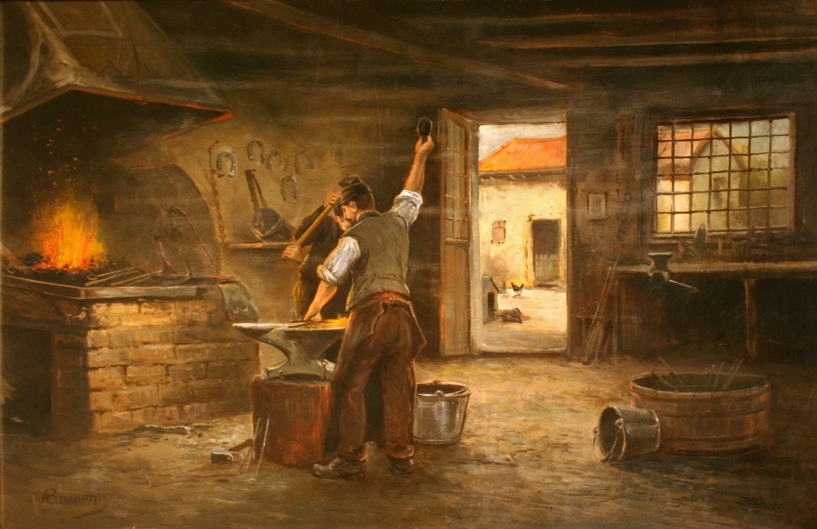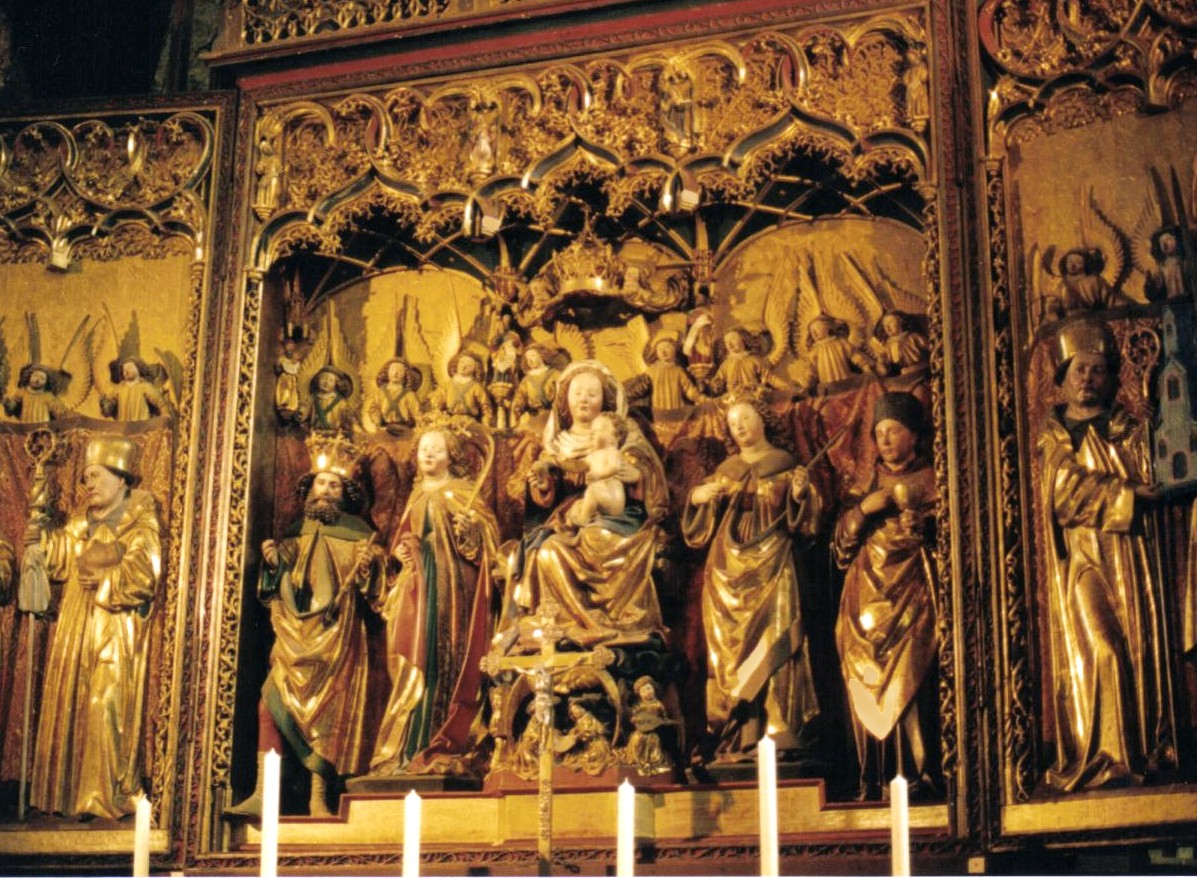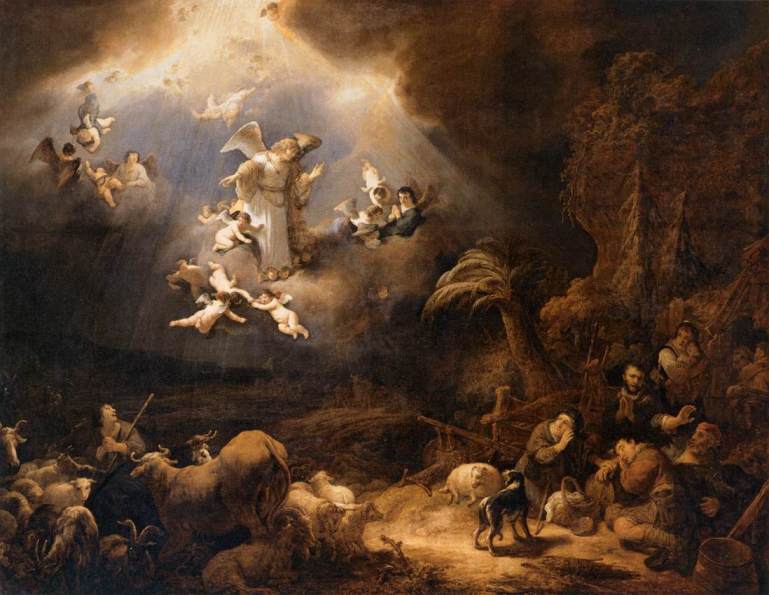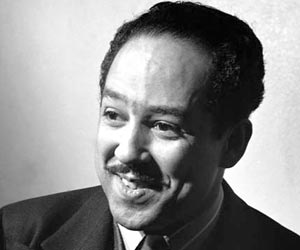Website Contributors
Lorem ipsum dolor sit amet, consectetur adipisicing elit, sed do eiusmod tempor incididunt ut labore et dolore magna aliqua. Ut enim ad minim veniam, quis nostrud exercitation ullamco laboris nisi ut aliquip ex ea commodo consequat.

Context: This poem is written by Henry Longfellow, an American poet, who was a famous figure in America during the 19th century. By the time of 1850s he gained fame, and his poems became famous worldwide. He is known for his romantic imagery poems, and the dual meaning behind them. He can see through very… Continue reading The Village Blacksmith Analysis by Henry Longfellow

The Village Blacksmith is a poem written by Henry Longfellow, which I will look upon by writing The Village Blacksmith: summary and critical analysis. The Village Blacksmith: Summary “Under a spreading chestnut-treeThe village smithy stands;The smith, a mighty man is he,With large and sinewy hands;And the muscles of his brawny armsAre strong as iron bands.” The poet here gives a description about the appearance of the village blacksmith in the village by telling about… Continue reading The Village Blacksmith: Summary

Air and Angels: Themes Love: Love is the predominant theme. Love is approached in two different ways in this poem. Initially, the speaker, whom we can also call the poet-persona, can be seen as having a definitive view of love. Love, according to him, in the first stanza, needs to take a bodily form to… Continue reading Air and Angels: Themes and Poetic Devices

The poem was written by 16th century metaphysical poet, John Donne (1573-1631). It was published in Donne’s poetry collection, Poems in 1633. The poem is one of many pieces written by Donne in the field of love, sensual or spiritual. The sonnet is divided in to two stanzas, each of fourteen lines. The speaker of… Continue reading Air and Angels Summary by John Donne

The Laughing Heart was published in 1996 by Black Sparrow Press. It was written by the poet, Charles Bukowski in Circa.1993. Henry Charles Bukowski (1920-1994) was a German –born American author and poet. He is renowned for his literature on themes of alcoholism, problems of urbanity, and frivolous relationships with women. ‘The Laughing Heart’ is… Continue reading The Laughing Heart Summary by Charles Bukowski

It addresses all of humanity in person and tries to ignite the inner vitality. It also challenges carefully crafted social and religious structures. Themes:Light and Darkness: The poem is, at its heart, optimistic and motivational. Bukowski plays with the motifs of light and dark as visual clues to represent the hardships human beings go through… Continue reading The Laughing Heart Analysis by Charles Bukowski

Context: In this poem, the poet is trying to portray her Puritan and Biblical belief about the pleasure of the body deceiving the soul from the higher pleasures of Heaven. Flesh tells her sister that the joys and luxuries of the world are luxurious and happy, and that she should also open her eyes and… Continue reading Flesh and Spirit Analysis by Anne Bradstreet

Anne Bradstreet was one of the most prominent English poets of North America. She was also the first female writers from the British North American colonies whose works got published. She was a prominent Puritan, and it is very well seen in her poems. Here, I am going to analyse the poem “Flesh and Spirit”… Continue reading Flesh and Spirit Summary by Anne Bradstreet

This poem summary focuses on the poem ‘Ardella’ by the African-American poet Langston Hughes. Hughes was one of the main figures behind the Harlem Renaissance. As the name suggests (‘Harlem’ being a predominantly African-American neighbourhood of New York City), this was a movement for self-assertion of the African-Americans so that mainstream American society would sit… Continue reading Ardella Summary by Langston Hughes

This poem analysis of ‘Ardella’ by Langston Hughes is divided into three parts –rhyme scheme, rhetorical devices, and deeper meaning. Rhyme Scheme: There is no identifiable rhyme scheme that Langston Hughes follows while writing this poem. It appears to be written in free verse. However, if we divide the poem into two units of three… Continue reading Ardella Analysis by Langston Hughes




